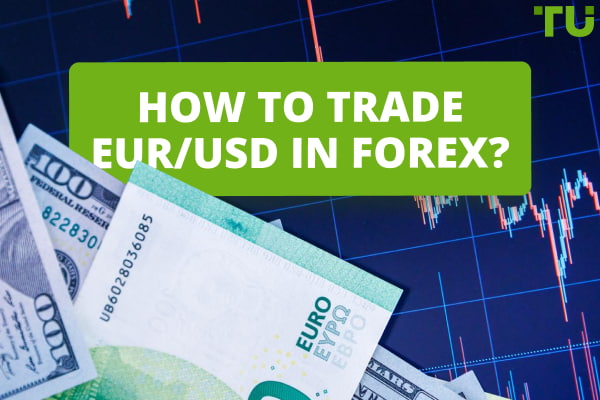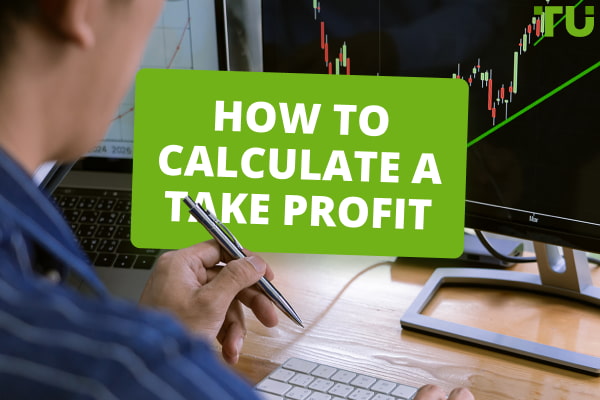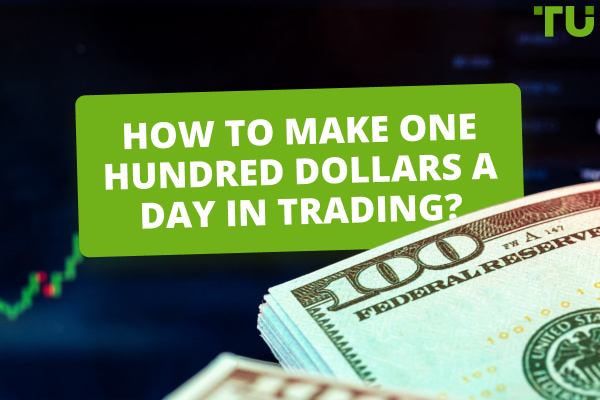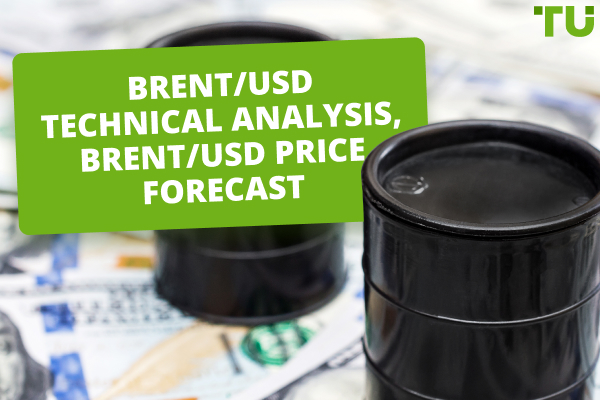Best Forex brokers to trade NASDAQ 100- Comparison
| Brokers |
US Indices |
Index ETFs |
U.S Stocks |
Demo account |
Regulation |
|
|
eToro
|
|
|
|
|
CySEC, FCA, ASIC
|
Open an account eToro is a multi-asset platform which offers both investing in stocks and cryptoassets, as well as trading CFDs. |
|
OANDA
|
|
|
|
|
FSC (BVI), ASIC, IIROC, FCA, CFTC, NFA
|
Open an account |
|
IG Markets
|
|
|
|
|
FCA, BaFin, ASIC, MAS, CySec, FINMA, BMA, CFTC, NFA
|
Study review |
|
Trading.com
|
|
|
|
|
FCA, CFTC, NFA
|
Study review |
|
FOREX.com
|
|
|
|
|
CIMA, FCA, FSA (Japan), NFA, IIROC, ASIC, CFTC
|
Study review |
|
Interactive Brokers
|
|
|
|
|
SEC, FINRA, SIPC, FCA, NSE, BSE, SEBI, SEHK, HKFE, IIROC, ASIC, CFTC, NFA
|
Study review |
|
Fidelity
|
|
|
|
|
US Securities Commission (SEC), SIPS
|
Study review |
|
Thinkorswim by TD Ameritrade
|
|
|
|
|
FINRA, SIPC, CFTC, NFA
|
Study review |
|
RoboForex
|
|
|
|
|
FSC
|
Open an account |
|
Pocket Option
|
|
|
|
|
MISA
|
Open an account |
eToro
The eToro broker was founded in 2007. The company promotes itself as a social trading platform working with traders from over 140 countries. The broker has several divisions operating under different jurisdictions and licensed by different regulators. For example, eToro (Europe) is licensed by the Cypriot regulator CySEC (109/10) and eToro (UK) is licensed by the British regulator FCA (583263). The broker also has a representative office in Australia and the USA.
eToro Profile Details
| 💻 Trading platform: |
Mobile Trading, WebTrader |
| 🔧 Trading instruments: |
Currencies, assets of stock and commodity markets, cryptocurrencies |
| 💱 Spread: |
From 2 points |
| ⭐ Trading features: |
Cryptocurrency trade; Structural investment portfolios; Copy Portfolios; Trading Central.
|
| 💰 Account currency: |
USD
|
• the minimum transaction amount for copying is $1;
• handy functionality for passive investing;
• regulated by independent monitors;
• it is possible to purchase contracts for fractional shares (that is, to invest amounts less than the cost of one share);
• it is possible to buy shares at once (not CFDs) on the US stock exchanges.
• high spreads;
• periodic technical failures in order execution;
• lack of the most popular platforms such as MetaTrader 4 and MetaTrader 5 in Europe and the CIS;
• no access to ECN systems, orders are processed only according to the STP (straight-through processing) scheme with access to specific liquidity providers;
• there is a commission for withdrawing funds;
• impolite support staff;
• inconvenient website.
OANDA
The name OANDA is an acronym for “Olsen & Associates” or “Olsen AND Associates”. It is registered in the United States and provides its clients with a wide range of financial services in most countries of the world. The company was founded in 1996 and is currently regulated in four jurisdictions. The main regulator of the broker is the UK Financial Conduct Authority (FCA). Oanda Canada is licensed by IIROC. The company has several significant awards to its credit, including a victory in the category "Best Forex Trading Technologies" from the UK Forex Awards, "Best Trading Platform" from FX Week, as well as "Best Customer Service" from the US Foreign Exchange Report.
| 💻 Trading platform: |
WebTrader, MetaTrader4, Mobile platforms, MetaTrader5 |
| 🔧 Trading instruments: |
FX, Indices, Bullion, Commodities, Crypto |
| 💱 Spread: |
From 0 points |
| ⭐ Trading features: |
Advisors; Availability of a demo account; A large number of training materials.
|
| 💰 Account currency: |
USD, EUR, HKD, SGD
|
• Minimum deposit from 1 dollar.
• A large selection of the most popular trading instruments.
• Several reliable and reputable financial regulators.
• Inconvenient and poorly functioning site.
• Lack of cent accounts.
• Lack of bonus programs.
IG Markets
IG Markets has been providing brokerage services for retail traders since 2014. It was established in 1974 in London to work with professional traders. It is a part of the IG Group with representative offices in 17 countries. IG Markets stocks are traded on the London Stock Exchange as a part of the FTSE 250 index. The broker is regulated by FCA (Financial Conduct Authority | the UK), CySec (Cyprus Securities and Exchange Commission), ASIC (Australian Securities and Investments Commission), BaFin (the Federal Financial Supervisory Authority | Germany), FINMA (Swiss Financial Market Supervisory Authority), and NFA (National Futures Association). The IG Group global representative office is supervised by BMA (the Bermuda Monetary Authority). The broker provides services of trading Forex and different CFDs through MetaTrader 4 and its in-house platforms for retail and professional traders.
| 💻 Trading platform: |
MetaTrader4, API, ProRealTime, IG Trading Platform |
| 🔧 Trading instruments: |
Forex; CFDs on indices, commodities, and stocks;
Cryptocurrencies, options, interest rates, sectors, bonds, knock-outs, ETFs, and
Futures on indices and commodities |
| 💱 Spread: |
From 0.4 points |
| ⭐ Trading features: |
Leverage depends on the instrument and the regulator;
Hedging and EAs are allowed.
|
| 💰 Account currency: |
USD
|
• Regulated activities and participation in compensation funds;
• No minimum deposit requirements when opening an account with the international division;
• Leverage is available for trading currencies and CFDs;
• Wide range of trading assets and markets;
• Fee rebates for new and active existing clients with large trading volumes;
• Floating spreads from 0.6 pips for retail Forex traders;
• Bonuses for new clients and partnership programs for different client categories.
• The broker can reject opening accounts to traders with low capital or insufficient knowledge of derivatives trading;
• Deposits and withdrawals can’t be made with e-wallets, electronic payment systems, or cryptocurrencies;
• Trading conditions differ for various countries, so you have to look for the broker’s website in your country.
Trading.com
Trading.com is a UK broker whose full name is Trading Point. Previously, it was called XMUK, but in 2019 it was rebranded and the company began to operate under its new title: Trading.com. The company offers to trade six asset classes such as currency pairs, metals, as well as CFDs on stocks, stock indices, commodity futures, and energy resources. More than 1,250 assets are available in total. The main office is located in London, the broker is regulated by the FCA (Financial Conduct Authority), and its registration number 705428.
| 💻 Trading platform: |
MT5 |
| 🔧 Trading instruments: |
Currency pairs (57), CFD on shares (1200+), commodity group (8), indices (14), metals (2), energy resources (5) |
| 💱 Spread: |
From 0.6 points |
| ⭐ Trading features: |
$5/month – payment for inactivity on the account
|
| 💰 Account currency: |
EUR, USD, GBP, CHF, AUD, PLN, HUF
|
• Favorable trading conditions - average spreads in major pairs are 0.6 pips.
• No commissions.
• Moderate requirements compared to the size of the minimum deposit. You can start trading when you deposit at least $5 to your account.
• MetaTrader 5 desktop and mobile platforms, as well as a web terminal, are available for trading.
• Reliable FCA regulation.
• The broker only provides services to UK citizens.
• The absence of PAMM and MAM accounts for passive investing.
• The absence of bonuses, training programs.
FOREX.com
Forex.com is a company owned by GAIN Capital Holdings, Inc. (NYSE: GCAP) and has earned a reputation as a reliable broker in the trading industry for its transparent work and high quality of services. The company cooperates with clients in 140 countries. The broker is registered in the Cayman Islands and supervised by CIMA (Certified Institute for Management Accountants). The license number is 25033. The parent company of the Forex.com broker is registered in England and Wales under the number 1761813 at the UK Companies House. It is licensed by one of the most reputable regulators in the world, FCA (No. 113942).
| 💻 Trading platform: |
FOREX.com, MT4, MT5 |
| 🔧 Trading instruments: |
Forex, cryptocurrencies, indices, commodities, stocks |
| 💱 Spread: |
From 0.2 points |
| ⭐ Trading features: |
There is a cryptocurrency trading
|
| 💰 Account currency: |
USD, EUR, GBP
|
• average rate of order execution is 0.04 ms;
• reliability is controlled by several regulators so customer funds are kept on separate accounts from the company's assets;
• attractive trading conditions are tight spreads on over 90 assets, including currency pairs and metals, and over 4,500 markets, including FX, indices, commodities, stocks, and cryptocurrencies.
• poor quality of site optimization, little specifics in the descriptions of services, tabs at the top of the page do not work. To find the information you have to use a tab called "Sitemap";
• it is difficult to contact the support service due to its high workload;
• large fixed commission for withdrawing funds;
• high initial deposit, it starts from $1,000;
• there are few options for depositing and withdrawing funds, the terms rarely correspond to those stated.
Interactive Brokers
Interactive Brokers is among the best-known US investment companies, operating since 1977. The broker offers to trade currency pairs, but its basic instruments are stocks, CFD, indices, metals, ETF, futures, and other exchange market assets. You can also trade cryptocurrencies on Interactive Brokers. The company is regulated by the US Securities and Exchange Commission (SEC), the US Financial Industry Regulatory Authority (FINRA), the UK Financial Regulatory Authority (FCA), and other international financial regulation commissions. In 2020, the broker was awarded the "Best Online Broker” (Barron's) and "Best Broker for Economical Investments" (NerdWallet) titles and got five stars in the Online Stock Trading for Traders category (Canstar). Also, the broker is popular in other countries. Here you can read reviews of Interactive Brokers in Canada, Singapore, Australia, Hong Kong, Ireland.
| 💻 Trading platform: |
Trader Workstation, IBKR Mobile, APIs |
| 🔧 Trading instruments: |
Stocks, options, futures, currency, metals, bonds, ETF, mutual funds, CFD, EPF, Robo-portfolios, hedge funds |
| 💱 Spread: |
From 0 points |
| ⭐ Trading features: |
Options, trading, CFD, ETF, EPF
|
| 💰 Account currency: |
USD, EUR, GBP, AUD, CAD, CZK, DKK, HKD, HUF, ILS, JPY, MXN, NZD, NOK, PLN, SGD, SEK, CHF, CNH
|
• wide range of training materials;
• access to 135 markets in 33 countries;
• a huge subset of trading instruments.
• website interface is only partially translated into other languages;
• you have to pay for an inactive account;
• Support service does not work on Saturday and Sunday;
• long and complex registration procedure;
• no cent accounts for novice traders.

















